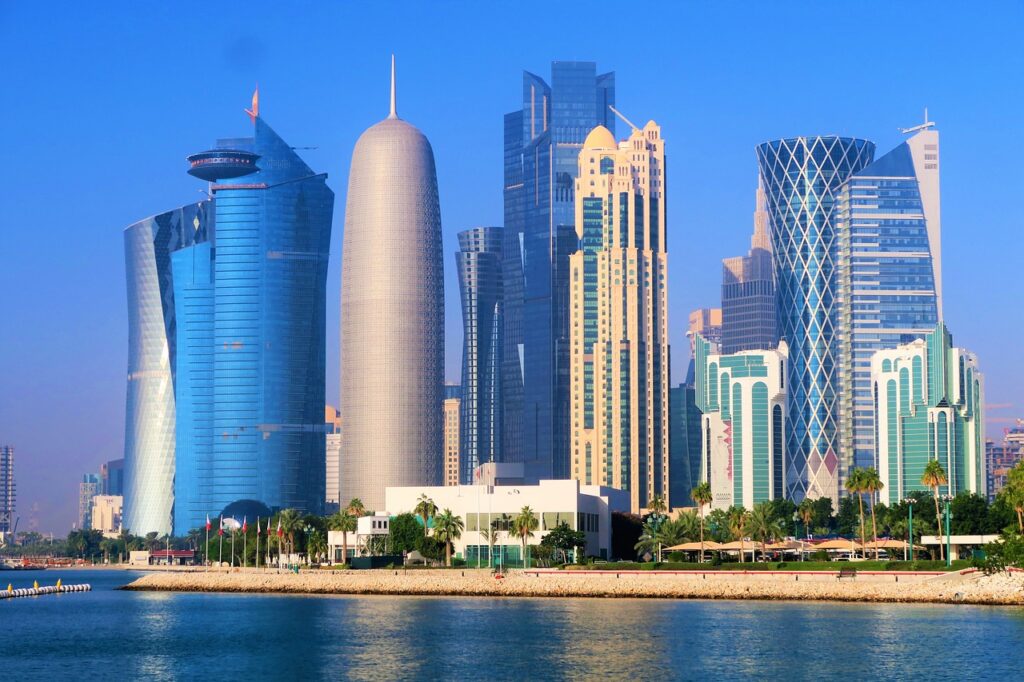qatar 100 billion fdi plan has been officially revealed as part of the country’s ambitious roadmap to transform its economy and attract global investors. The plan is designed to secure over $100 billion in foreign direct investment across multiple industries, making Qatar one of the most attractive hubs for international business in the Middle East.
This bold initiative not only signals Qatar’s intention to diversify beyond natural gas revenues but also highlights its commitment to becoming a global center for innovation, finance, tourism, and renewable energy.
What makes this $100 billion strategy remarkable is not only the size of its ambition but also the wide range of sectors it targets. From clean energy and finance to tourism and technology, Qatar’s investment plan aims to reshape the very foundation of its economic model.
Qatar $100 Billion FDI Plan Explained
The Qatar $100 billion FDI plan is a multi-stage program created to bring foreign capital into key sectors that will drive long-term stability and competitiveness. Authorities intend to attract investors through incentives such as tax exemptions, simplified regulations, public-private partnerships, and access to modern infrastructure.
Government ministries, Qatar Free Zones Authority, and the Qatar Investment Promotion Agency are working together to ensure this plan unlocks opportunities for international players. The idea is to combine foreign expertise with local talent and resources to build a balanced and sustainable ecosystem.
Key components of the FDI plan include:
- Large-scale investments in renewable and clean energy projects
- Expansion of financial services, fintech, and capital markets
- Technology and innovation hubs designed for startups and global firms
- Tourism and hospitality expansion targeting luxury and cultural experiences
- Healthcare and education sector modernization to serve as regional benchmarks
- Infrastructure development linked to logistics, smart cities, and green urban planning
Why Qatar is Betting Big on FDI
Qatar’s economy has long relied on liquefied natural gas exports, but leaders recognize that energy dependence alone is unsustainable in a rapidly changing world. The shift toward renewable energy, global pressure on carbon emissions, and fluctuating energy prices mean diversification is essential.
The $100 billion FDI plan is seen as the answer to these challenges. By bringing in global capital, Qatar can accelerate transformation while maintaining high growth. Moreover, this plan strengthens the country’s geopolitical standing as it positions itself as a reliable business partner in the Middle East.
Sectors Likely to Benefit
Energy Transition: Qatar has pledged to be part of the global green energy movement. Foreign investments will play a role in large solar parks, hydrogen projects, and carbon-neutral initiatives.
Technology: Qatar aims to establish itself as a regional hub for artificial intelligence, cybersecurity, and advanced digital services. Startup incubators and free zones will host innovative firms.
Finance: With an expanding financial center in Doha, Qatar seeks to attract global banks, venture capital funds, and insurance companies.
Tourism: Building on the success of the FIFA World Cup 2022, Qatar plans to grow its tourism industry by offering cultural tourism, luxury resorts, and business conferences.
Education and Healthcare: Partnerships with foreign universities and medical institutions will help raise standards and attract international students and patients.

Global Investor Response
Even before its public announcement, Qatar’s secret FDI plan has been the subject of private talks with global investors. Early responses from Asian, European, and American firms indicate strong interest, particularly in the renewable energy and technology sectors.
Multinational corporations are drawn to Qatar’s political stability, high-quality infrastructure, and strategic location. The Gulf country’s access to Asian, European, and African markets makes it an ideal base for operations.
Challenges Ahead
While the Qatar $100 billion FDI plan is ambitious, it also faces challenges. Global economic uncertainty, competition from neighboring Gulf countries, and potential geopolitical risks could impact the pace of investment.
Additionally, regulatory efficiency and ease of doing business will be critical. Investors will expect transparent governance, reduced bureaucracy, and strong legal frameworks to protect their interests.
Qatar’s leadership has acknowledged these concerns and is working to align its business environment with international standards.
Impact on Qatar’s Economy
If successful, the Qatar $100 billion FDI plan will have transformative effects. It could generate thousands of new jobs, enhance local skills, and create entirely new industries within the country.
Foreign investment inflows will not only boost GDP but also help Qatar become less vulnerable to energy market volatility. The ripple effects of this transformation will be felt across society, from improved healthcare and education to modern infrastructure and new career opportunities.
Future Outlook
Experts believe that Qatar’s strategy could make it one of the most attractive global destinations for investment by 2030. The combination of political stability, financial strength, and long-term planning places the country in a strong position.
The $100 billion plan could also inspire neighboring countries to raise their investment ambitions, potentially transforming the Gulf into a global hub for foreign capital.
Conclusion
Qatar $100 billion FDI plan is more than a financial strategy. It represents a vision for the future—a future where Qatar stands tall as a diversified, resilient, and globally connected economy.
With careful implementation, investor-friendly policies, and global cooperation, this plan could not only attract massive foreign investment but also redefine the Gulf’s economic landscape.
Qatar has revealed its secret plan, and now the world is watching to see how quickly it can turn ambition into reality.
Do follow us: Instagram
Read More: Central Bank of Bahrain Grants Financing Company License to L2O B.S.C. (c)



